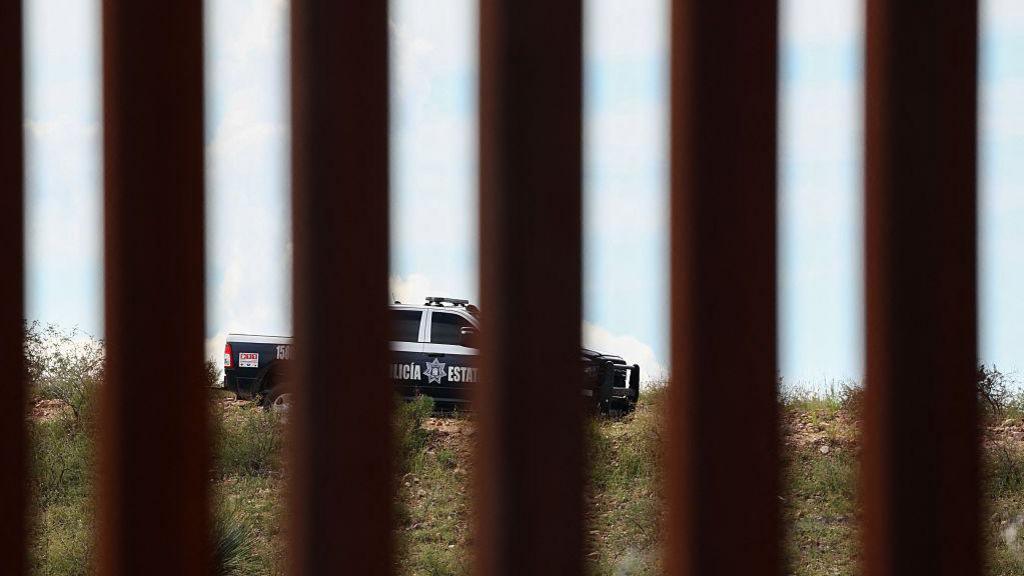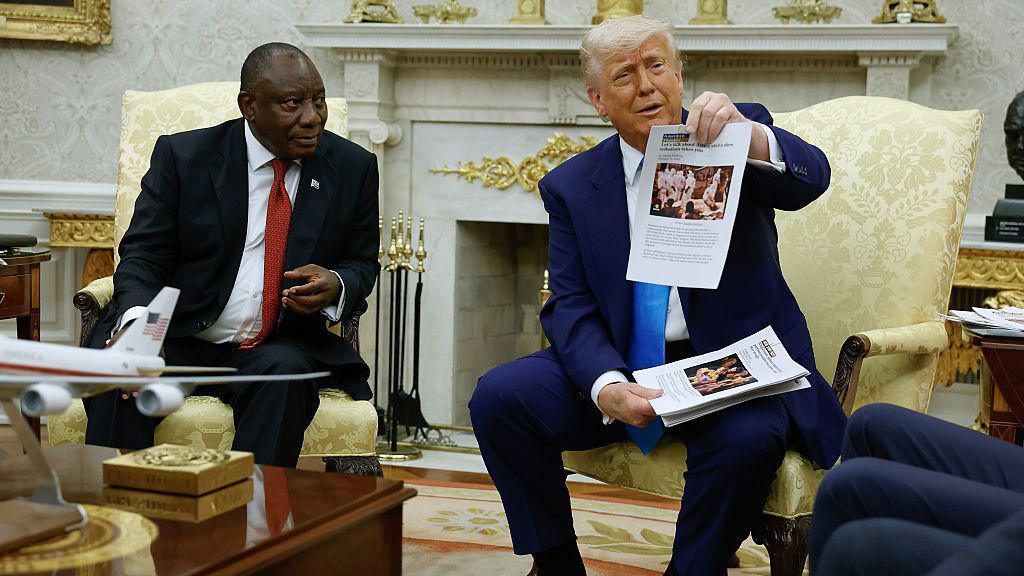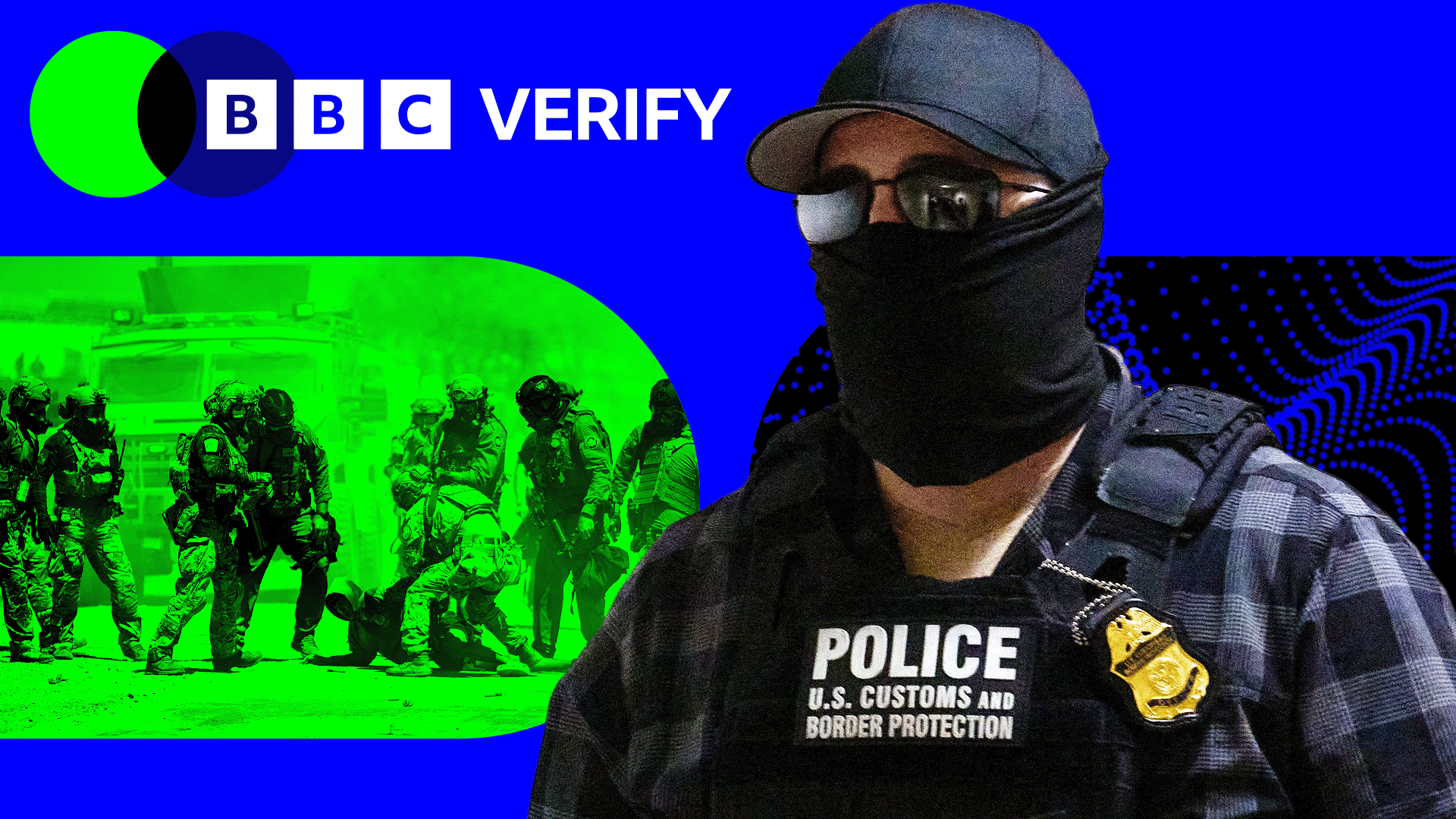'Chaos has gone' - quiet streets on Texas border after Trump crackdown
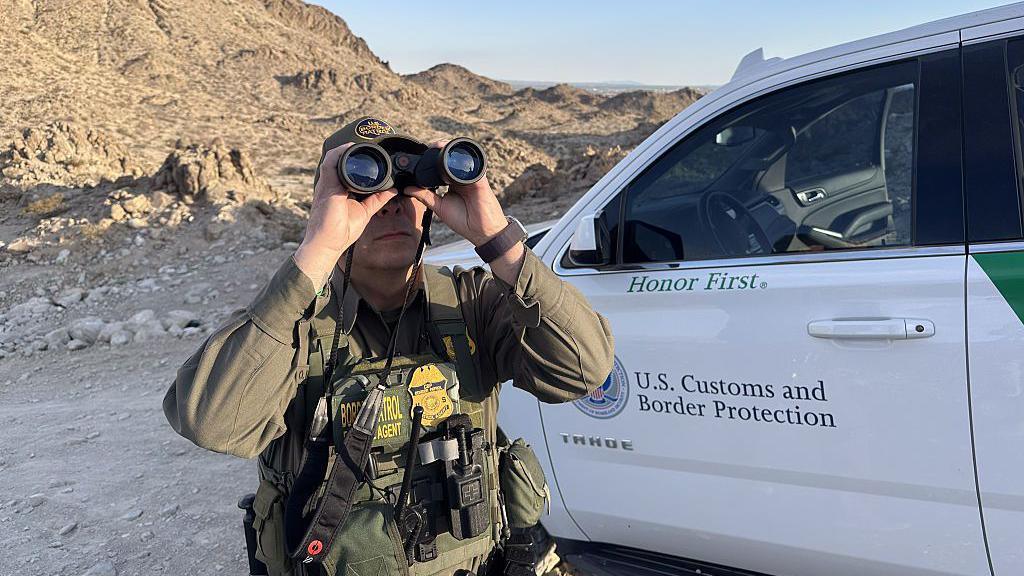
The Trump administration has beefed up enforcement in the El Paso area as well as across the length of the entire US-Mexico border.
- Published
In Chicago, Los Angeles and Portland, the immigration debate has spilled into the streets, sparking almost daily demonstrations while immigration agents ramp up arrests.
But in El Paso - a city in Texas on the US-Mexico border - the streets are unusually quiet.
A year after the BBC last visited the border to understand the impact of the migrant crisis on the border, sites that were once teeming with migrants lay largely silent.
Just a few years ago, as many as 2,500 migrants once camped outside the city's historic Sacred Heart Catholic church. Many lined the streets sleeping on donated blankets, idling while they waited for food and water to be distributed by local charities.
Now, only a handful of parishioners can be seen coming in and out of the church.
The same is true of a nearby park and of shelters throughout the city, where migrants once huddled to exchange their experiences of trudging through jungles and deserts or being detained, robbed or nearly kidnapped on their long journeys through Latin America to the border.
The influx prompted El Paso's government to declare a state of emergency in late 2022 as local shelters ballooned beyond capacity.
Then, when US President Donald Trump came into office in January - elected in part because of his promise to fix the border - the regular flow of migrants into El Paso slowed to a trickle.
It is a trend that has repeated itself along the length of the 1,900-mile (3,145km) border, from the Pacific Coast in California toTexas' Gulf coast.
Figures for detentions of border crossers are at a 50-year low.
In September alone - the last month for which complete data is available - 11,647 people were detained along the entirety of the US-Mexico border, compared with 101,000 in September 2024 and 269,700 the same month in 2023.
One volunteer network, Annunciation House, once ran as many as 22 shelters throughout the region, catering in large part to thousands of migrants paroled into the US to await court dates, often years in the future.
There are now only two. The relative trickle of migrants - 15 to 20 in each location on a given night - is composed, in part, of those headed back home after years in the US.
"We have people who entered and were given employment authorisation, or temporary protected status that Trump has taken away, and they can't renew their employment. Then they can't pay rent," Annunciation House director Ruben Garcia told the BBC.
Others, he added, are simply in need of a place to stay while "they can do the logistics" of leaving the country.
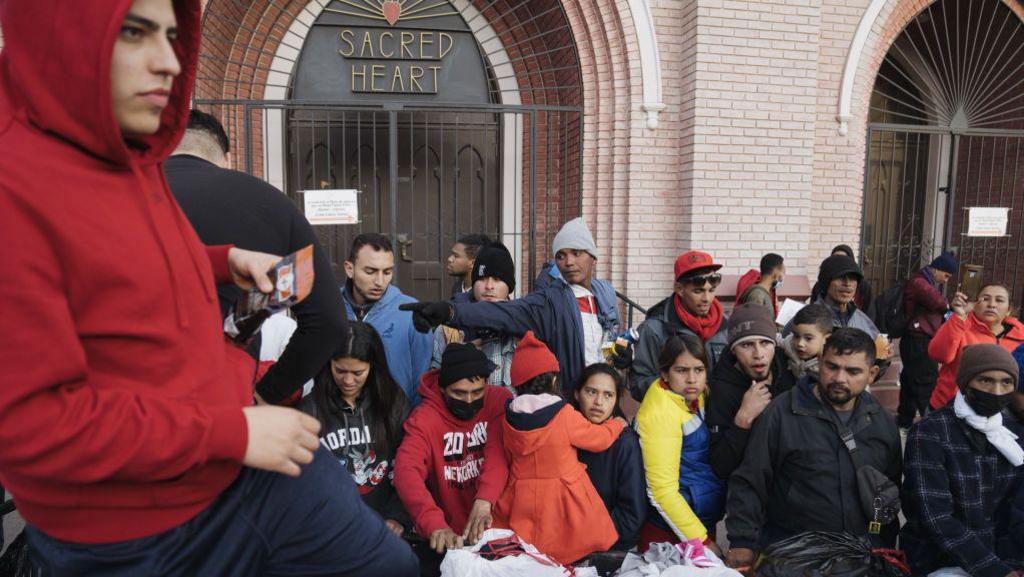
Authorities in El Paso sometimes struggled to cope which the large number of migrants arriving to the city during the Biden administration.
For some along the border, the new reality comes as a relief.
Demesio Guerrero, a naturalised US citizen originally from Mexico who lives in eastern Texas, described the border as "chaos everywhere" under the Biden administration.
"There were encampments everywhere along the border, with women, children and old people," he said. "It was totally out of control."
That chaos had now gone, he said, because Trump had a vision for how to fix the problem and did it. "He did what he had to do, where he had to do it."
For six straight months, administration officials say, not a single undocumented migrant who was arrested was released into the US. Many have been deported, while others remain in immigration detention.
Border czar Tom Homan and Homeland Security Secretary Kristi Noem often declare that, for the first time in US history, the government has full "operational control" of the border.
For the White House, the figures represent a victory - fufilling a campaign promise that the president himself has touted as the one that led him back to the White House for a second term at a time when many Americans were concerned that Joe Biden had lost control.
"So far, this strategy has proven to be wildly successful," White House spokesperson Abigail Jackson told the BBC. "We're undoing the pro-illegal immigration policies from the Biden administration that allowed countless illegals into the country. We've secured the border."
The reasons for the low figures - which began falling in Biden's last year in office and rapidly accelerated under Trump - are complex.
Officials and experts point to a range of factors, including a Mexican crackdown on migrant flows north, the end of most humanitarian parole programmes, much tighter asylum restrictions and increased surveillance with the help of the US military.
Trump's deportation drive in the US interior has also served as a deterrent to would-be migrants.
"Not many people are crossing the border, and not that many are even trying," one undocumented immigrant, who asked to remain anonymous, said.
"With Biden, people knew that sooner or later they would be able to come across and stay. It's not like that now."
Some Trump supporters living in El Paso said that at times they feared for their safety, and accused the Biden administration of creating an atmosphere that endangered both local residents and migrants.
"We didn't feel comfortable going out by ourselves anymore," said Lorie Randazzo, a lifelong El Paso resident and the president of Greater El Paso Republican Women. "Almost as soon as Biden hit office, it got bad."
It's not that we don't want the immigrants coming in, she added, but only the best ones, the ones who want to work.
Elizabeth Amy Posada, an El Paso native and a former aide to the local Republican congressman, said there used to be "death everywhere", referring to migrants dying in the desert or in the Rio Grande, and those who fell victim to cartels.
"Everyone should be happy about this [border security], no matter what their political persuasion."
US workers build a new 'secondary' wall in Santa Teresa, New Mexico
But for others, Trump's border security drive brings mixed feelings.
Many local conservatives are sympathetic to the plight of migrants. Other locals, vehemently opposed to Trump, say they understand the need for stronger border protections and recognise the important role that federal officers play in their communities.
"We absolutely live in the grey area here," said Marisa Limon Garza, the executive director of the Las Americas Immigrant Advocacy Center, an El Paso non-profit that provides free and low-cost legal services to immigrants and refugees.
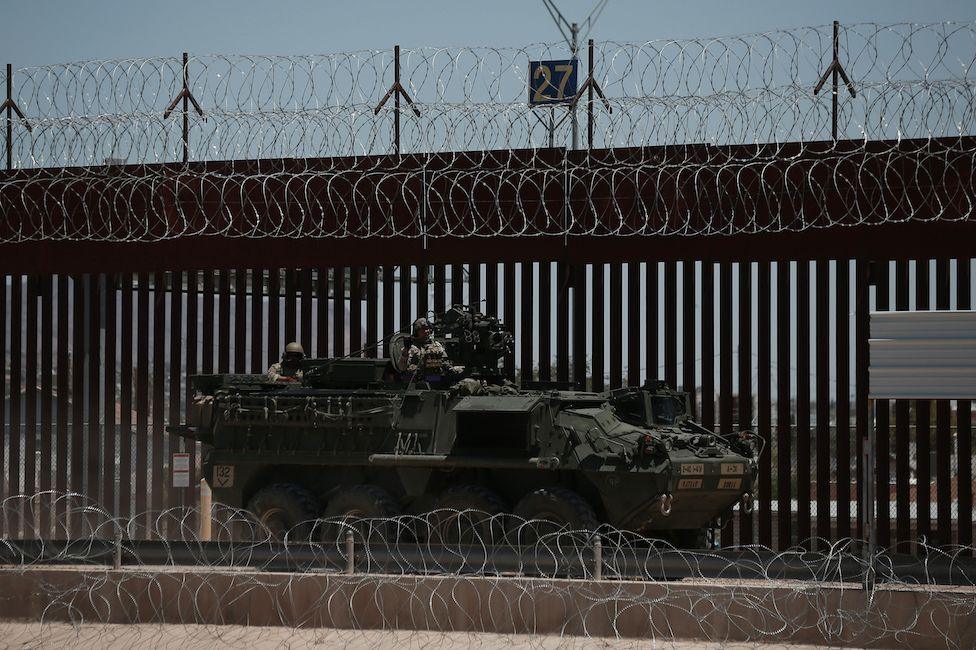
According to Ms Garza, the prospect of long-time residents being removed from the country is particularly galling to border residents, many of whom have family on both sides of the border or come from immigrant families that came to the US generations ago.
While Trump and other officials have repeatedly said that immigration officials are going after "the worst of the worst", data shows that is not the case.
The Transactional Records Access Clearinghouse - which tracks immigration data - found that just over 70% of the nearly 60,000 people held at the end of September had no criminal record. Many have been in the country for years.
"Now what we know to be true is that some people are waking up and realising they got scammed," said Ms Garza, referring to locals who voted for Trump.
"Realising that they screwed their families, their loved ones, and their neighbors… and now have to wrestle with that."
Ross Barrera, a 29-year-veteran of the US Army and a Republican who lives in Rio Grande City, told the BBC that most people in his small border community are broadly in favour of strong border security, given that legal travel and commerce across close-knit US and Mexican towns continues unabated.
But Mr Barrera added that images of harsh immigration enforcement raids across the US "upset a lot of people" and have caused friction.
"That upsets me too," he said. "People are human. It bothers people that the lady who's been here 20 years is getting deported, or the dad who's been here 40 years is getting deported."
Others are more blunt.
"There's a lot of people that are having second thoughts about the way they voted," said Jesse Fuentes, an activist in Eagle Pass, another town that found itself in the middle of America's border battle in mid-2023.
"But people are afraid to say or do anything."
Related topics
- Published7 October
